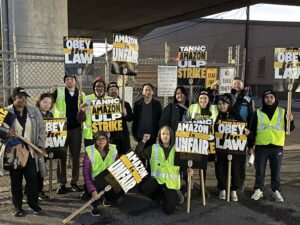It’s back to school but you have to stay home with your kid because of COVID: What you can and cannot do
September 20, 2021As if parenting and holding down a job weren’t already hard enough, the coronavirus pandemic has forced working parents to juggle competing demands from their employers and their children, many of whom were in ‘virtual’ school or had to stay home because their child-care was closed due to health and safety concerns.
A federal law was passed to address this problem, but most of that has expired. However, California law still provides some protection for parents. The California Labor Code allows employees of employers (of 25 or more employees at a single location) to take up to 40 hours off work each year to:
Find, enroll, or re-enroll children in school or with a licensed child-care provider (no more than 8 hours in a month);
Participate in your children’s school or licensed child-care provider’s activities (no more than 8 hours in a month); or
“Address a child-care provider or school emergency”
In all cases, prior to taking the time off, you need to give “reasonable notice” to the employer of your absence but, as any parent knows, school or childcare emergencies rarely allow much notice. Employers can ask for written proof supporting the need for school or childcare leave time.
What’s an “emergency”?
Any situation where the child cannot stay at school or with the child-care provider because of school/childcare policy, a behavior or discipline problem, unexpected unavailability or closure, or a natural disaster.
What are school activities?
Parent volunteer activities like a field trip, or a school play, as well as meetings with a child’s teacher or counselor.
While the law allows for the time off, is it paid time?
The law creates no new obligation on employers to pay for this parental leave, so parents are left with choosing to take unpaid time or use the sick leave, vacation or other paid time off under your collective bargaining agreement.
In sum, California law allows parents some relief, but to take it as paid time, you will have to dip into your sick or vacation time.





